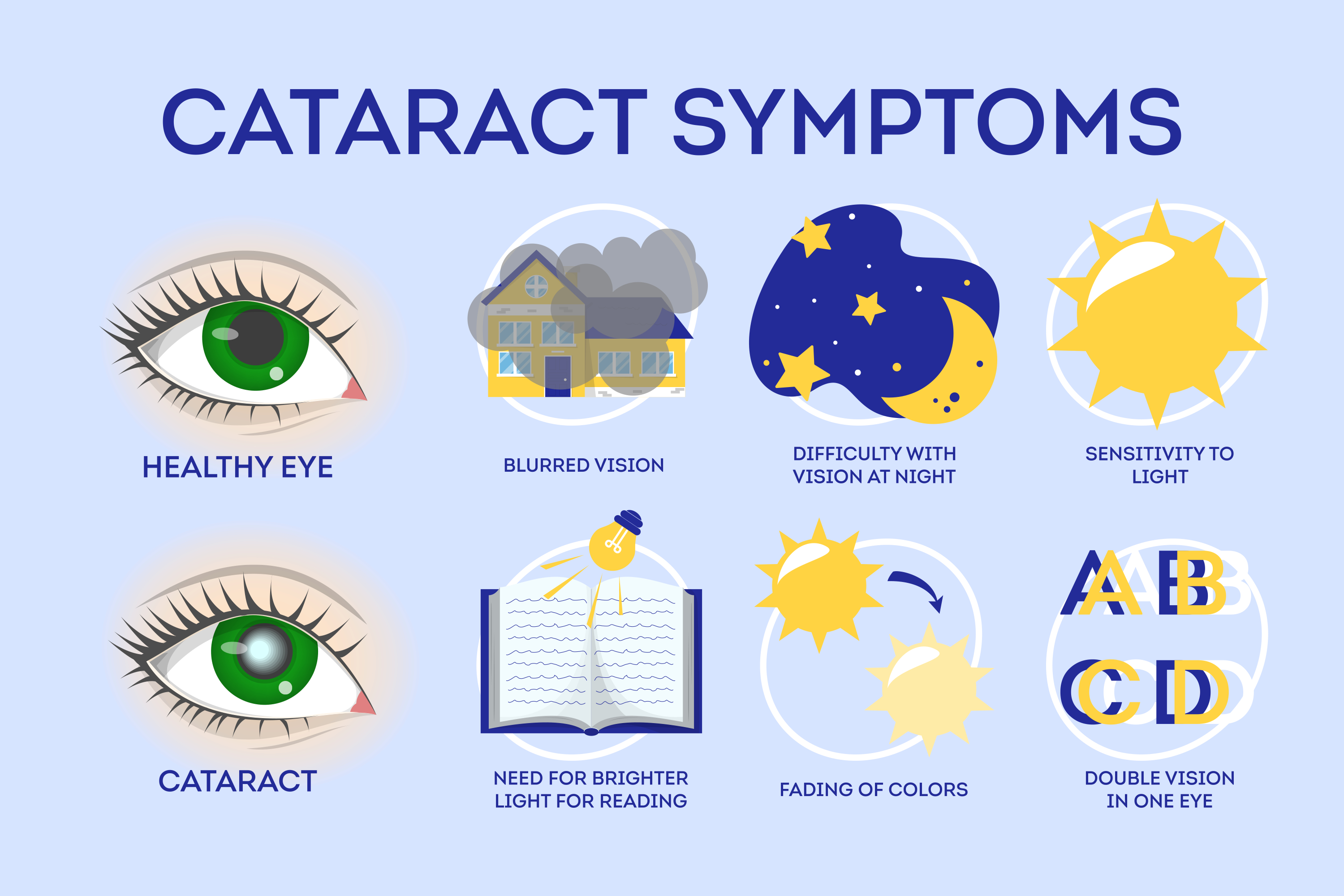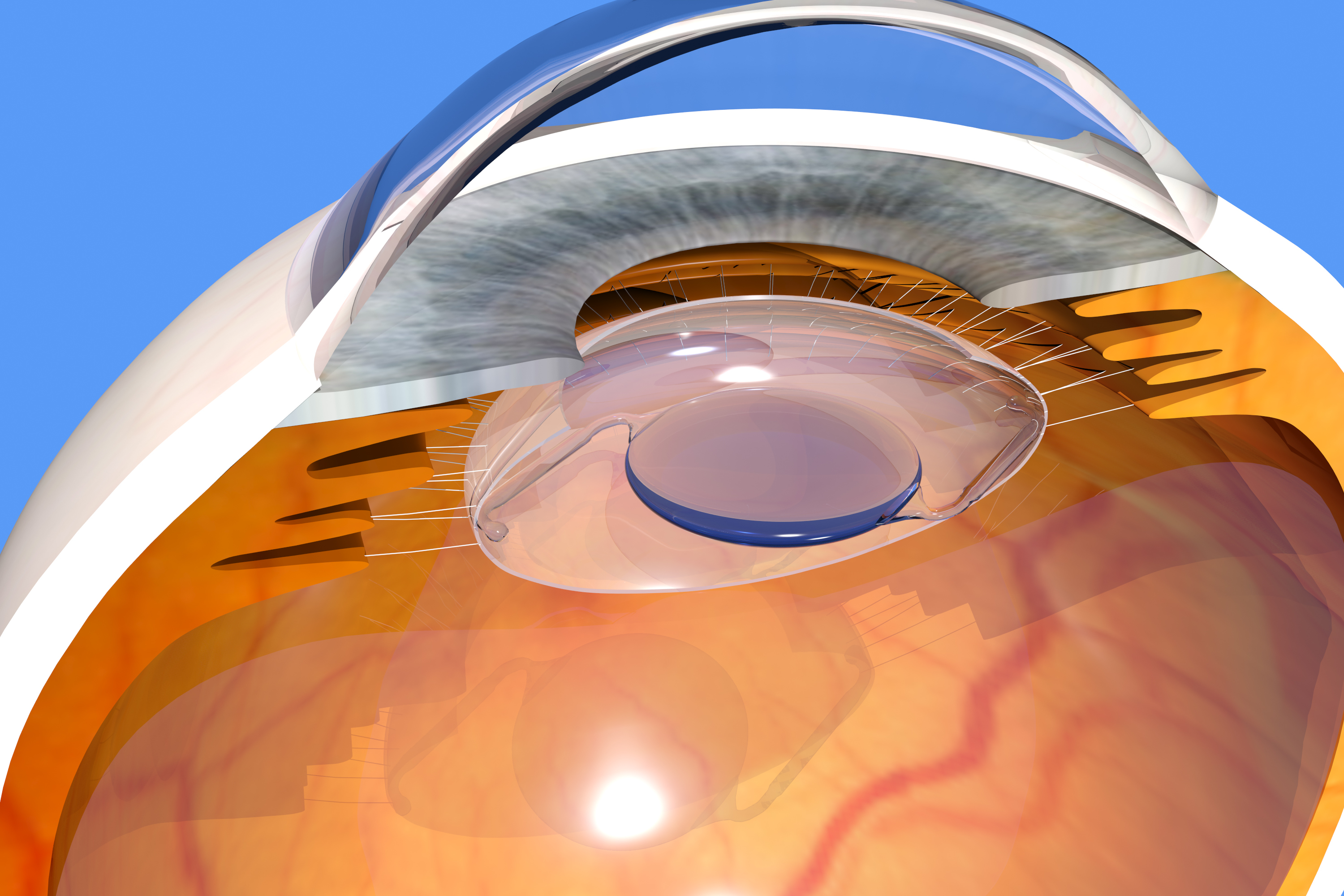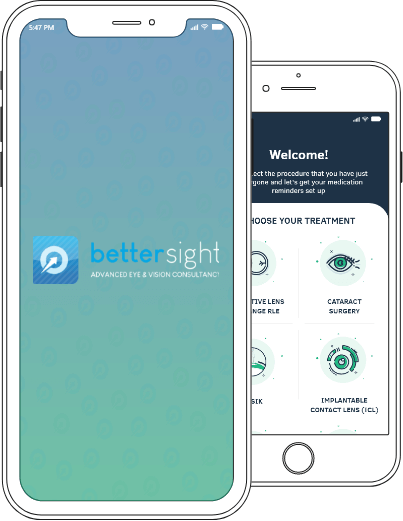

Don't languish on NHS waiting lists. Discover how I can help you to a life free of cataract symptoms and do away with the need for glasses in most cases as well. This is Customised Refractive Cataract Surgery.
or you can download my guide to State of the Art Vision Correction Treatments -2020 and BeyondMr S. Rehman

You may have heard the phrase “the eye is like a camera” and the reason that so many people say this is because it’s actually true! Light enters the eye through the outer layer or cornea, passes through the lens and is focussed to a sharp image on the light sensitive layer at the back of the eye called the retina, where it is sent to the brain so we can “see”.
The lens is normally as clear as a drop of water, allowing light to pass through freely; a cataract is formed when the lens in the eye goes cloudy. This cloudiness is something that happens to all of us to some degree as we age. It is also associated with certain other medical conditions (such as diabetes). In a few unfortunate people it can even occur at a much younger age than normal, in their 40’s or even earlier.
So what are the consequences of a cataract? It’s a bit like taking photographs when the lens of your camera is fogged – or your vision (if you wear glasses) when you walk into a warm room from being out in the cold. Colours become less clear, bright lights can be surrounded by halos, you tend to get dazzled (by cars when driving at night, for example) and constantly feel as if you ned new glasses. In very bad cases it can be had to recognise faces, and if left untreated you will go blind – although this is now rare in the UK as most people get treated much earlier than this.

Cataract surgery has evolved hugely over the last thirty years. In my hands this is a 10 minute procedure performed using nothing more than eyedrop anaesthesia, no needles/injections required! and with micro-incisions and advanced lens implants to correct astigmatism and even provide functional near sight - cataract surgery is by definition also a full complement vision correction procedure. Watch the video below to see the main technical steps of the procedure. Finally - most patients undergoing cataract surgery at my practice report little or no discomfort during or after the procedure.


Ever since 1949 when London eye surgeon Mr Harold Ridley implanted the worlds first intraocular lens, lens technology has developed at an incredible pace.
The original intraocular lens (IOL) was essentially made from a material similar to perspex and was implanted through a large incision. Fast forward 70 years and today we have IOL's made from high optical quality, flexible materials which can be implanted through tiny 2mm incisions. This means your eye heals and seals much faster.
But there is even more - IOL's also now come with differing optical properties. If you want of find out more about current IOL technology just click here and let's go.
Yes- there are very few situations in which we would not be able to offer cataract surgery for a patient. Obviously if we identify medical problems that could increase the risk of an adverse outcome then this will be discussed in depth with you, in order for you to come to an informed decision on whether to proceed or not.
No – cataracts are by their very nature, degenerative. This means that once a cataract is identified it will likely progress with further decline of vision and vision quality over time. Unfortunately Cataracts cannot regress.
No – there is no evidence that cataract’s once formed can be treated successfully with any form of eye-drop treatment.
No – it is not possible for a cataract to reform after cataract surgery. Remember the clouding crystalline lens is removed in its entirety as part of the cataract operation. You may have heard of something called ‘after cataract’ – this is not a true cataract, but rather a clouding of the capsule, called ‘posterior capsular opacification – PCO’ and can arise over the subsequent years after cataract surgery. PCO however is treated using a simple type of laser called a YAG laser and is a 5 minute outpatient, painless very low risk procedure which once done is extremely unlikely to reform.
This is not true, in fact in general cataracts are more likely to be treated successfully in the early to moderate stage of cataract formation. Once a cataract is ‘ripe’ it has become completely opaque or very dense and the risks of cataract surgery go up quite considerably. With old fashioned, large incision cataract surgery (called ECCE) it was indeed better to have a more ripened cataract for surgery, but with todays’ ultra-small incision surgery it is generally lower risk to have cataract surgery at a much earlier stage.
No – in my practice, over 99% of patients are treated with nothing more than eye-drop anaesthetic – no needles and no injections either! However, for patients who have profound anxiety or medical conditions which may not allow them to cooperate with the procedure (e.g Parkinsons tremor, Dementia etc) then full general anaesthesia is certainly possible. Please note that our GA service is available only at the Spire Hospital Elland.
No – in my practice, over 99% of patients can be treated successfully and with little or no discomfort with nothing more than eye-drop anaesthetic. I do not find it necessary to use needle injections in any case with modern techniques. In fact one might wonder why many eye surgeons continue to use injections for cataract surgery! something I abandoned over 15 years ago!
Three main reasons – All come down to one word - CHOICE
Another old wives tale from the past – but one that bizarrely continues to linger. NO. ABSOLUTELY NOT – and what’s more it NEVER WAS THE CASE. Your eye remains exactly as it is – rest assured.
Yes – absolutely. We have a very specialised protocol in place at all our sites which allows us to perform same day bilateral surgery in the safest way possible. Here is how we do it,
These measures are not easily performed and only a few select service providers are able to meet my stringent criteria to allow safe delivery of same day cataract surgery. You can be assured that I and my team leave no stone unturned to provide the safest possible environment for you to have both eyes treated on the same day in this way – if you choose to do so
Yes – It’s not unusual for people who have enjoyed good vision without need for glasses (emmetropia) to require glasses after cataract surgery unless special attention is paid to your eye scans. Some people will have astigmatism on the cornea that is ‘cancelled out’ by corresponding but reverse astigmatism in the natural lens. Because the natural lens is removed in cataract surgery this allows for the corneal astigmatism to suddenly reveal itself after cataract surgery. The result is a need for astigmatic glasses, something you would not have required if full attention is paid to your situation. Up-to 30% of people can have significant astigmatism on their cornea, which if not properly addressed with “toric’ lens implants could leave them feeling unsatisfied with their outcome.
Total patient support- in the palm of your hand.
